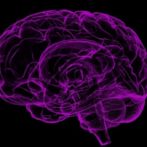Snapshots of Dementia: Sudden Impact
(Paul Barlow, Pixabay) For much of this year, we’ve rocked along in our dementia journey without major obstacles or downturns. In fact, I realized the other day that Tom hasn’t had a major fall for a number of months. I don’t know if we can attribute that to an improvement in his balance, to his now-regular use of a walker, or to something else, but I’m grateful. However, I do recognize that his general direction is not up or even forward but steadily downward. At times, the force of what’s happening slams me right in the face—or, more accurately, in the heart—with what I can only describe as sudden impact. This happened just two weeks ago when we were rehearsing our Christmas presentation. During our rehearsals, my mind kept returning to only a few years ago. Every December, Tom would throw all of his musical, physical, and spiritual energy into directing a full-blown Christmas production. Yes, I was proud of and grateful that this year, he sang a solo. But when I allowed myself to compare that to everything he used to do, the tears threatened to overflow. As we presented the Christmas music for the audience, I asked God to help me concentrate on the music, the message, the moment—so I could rejoice rather than weep. And thankfully, Tom never knew anything otherwise. Another sudden-impact moment happened just last week when a research coordinator from Emory’s Neurology Department met with him via Zoom to conduct some cognitive testing. In the past, doctors used these tests to help determine their diagnosis (or, for years, their lack of one). Now, the tests help assess how his dementia is progressing. Some relate to memory, and others, to overall cognition. When we were desperately seeking diagnosis, I wanted the testing to reveal deficits. Back then, his scores were high, remaining in the normal range even when his behavior showed obvious problems. But during last week’s testing, I realized that I wanted him to remember more or perform better than he could. The sudden impact came when I realized he couldn’t follow the simple instructions for some of the tests. Of course, I had to connect my laptop to the internet and set up the Zoom call; that would have been far more than he could do. In the past, Tom refused cognitive testing once or twice because he had taken these tests so often. Now, he simply accepts it as something he’s supposed to do—one more event that came with a sudden impact. We don’t have the full report yet, but the preliminary notes said the testing showed deficits in multiple areas. This shouldn’t have been news, but I still felt its...
Read More








